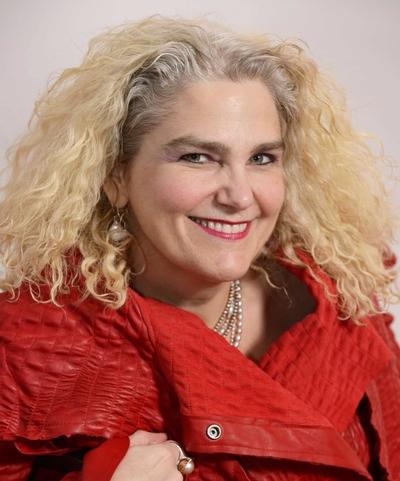During the COVID-19 pandemic, not everyone has been “in this together.”
That’s a key finding of an ongoing University of Guelph research project that uses storytelling and provides a platform for marginalized voices to share individual experiences of the pandemic.
Dr. Carla Rice, a professor in the College of Social and Applied Human Sciences and director of U of G’s Re·Vision Centre, collaborated with researchers from other Canadian universities to develop Online Storytelling: Access, Inclusion, and the “New Normal,” a digital platform where marginalized groups of people could share their experiences with COVID-19.
The team found that individuals from marginalized groups, including individuals who are racialized, disabled, labelled fat, neurodivergent or of intersecting identities, had different experiences during COVID-19 than many depictions of the impacts of the pandemic in the mainstream media.
Pandemic has had uneven impacts across social groups

“Dominant discourses are saying, ‘we’re all in this pandemic together,’” said Rice. “However, the pandemic has had uneven impacts across social groups and revealed societal imbalances.”
Rice and her team wanted to share their realities amid the pandemic. Since 2020, they have hosted more than 14 online workshops that included participants from marginalized groups. Those participants gained tools to develop their stories through script development and sound, image and video tutorials.
The stories from these workshops were shared widely with marginalized and non-marginalized communities through online conferences, among workshop participants, in academic publications, public talks and academic gatherings, and in undergraduate and graduate courses.
The conversations helped to share knowledge of lived experiences and civil rights issues for justice-seeking communities, said Rice.
“Our workshops have allowed us to connect with people of various intersecting identities across vast geographies,” she said. “They enabled story-making research to continue throughout the pandemic and brought people together in collective spaces during extreme isolation.”
Rice said story work challenges exclusionary narratives that deny realities within justice-seeking communities. In turn, story work legitimizes differing lived experiences and exposes pre-existing social inequalities.
By acknowledging that members from marginalized communities have varied lived experiences, society progresses toward a more equitable and inclusive future, said Rice.
“Story work is essential, as it allows people to share their experiences which help form our understanding of society. By shaping this understanding, these stories shape social reality.”
She plans to continue running workshops with marginalized folks across various geographical spaces.
Online Storytelling: Access, Inclusion, and the “New Normal” is a collaboration with researchers from Brock, Brandon, Toronto Metropolitan and York universities.
This project was supported by the University of Guelph COVID-19 Research Development and Catalyst Fund, the associate vice-president (academic) Scholarship of Teaching and Learning Grant, the Canada Research Chair Program, the Canada Foundation for Innovation and the Leaders Opportunity Fund.
Contact:
Dr. Carla Rice
carlar@uoguelph.ca
